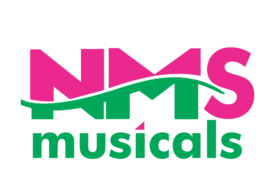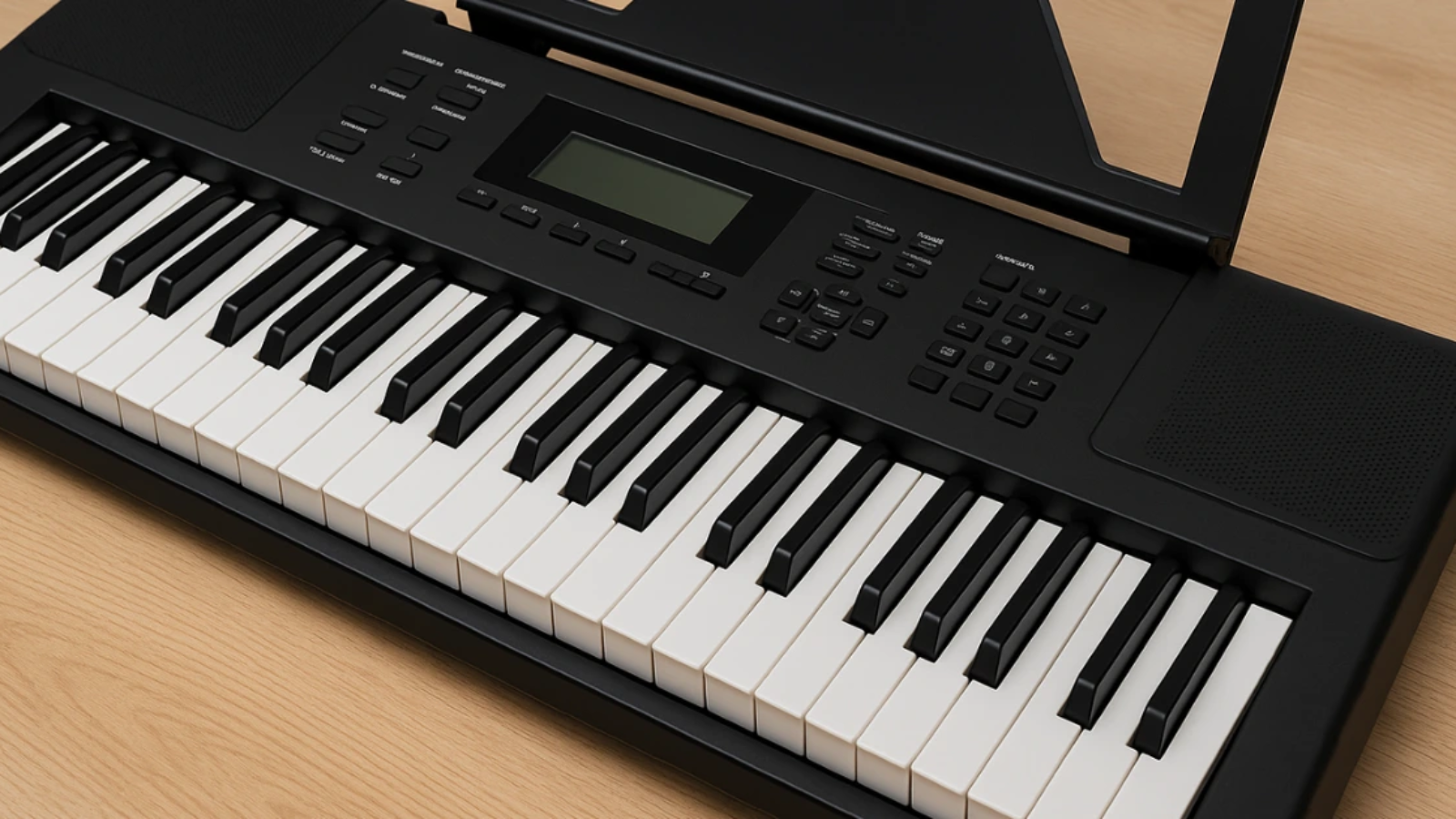Choosing the Right Electric Keyboard to enhance your Indian music studio.

In the fast-growing world of music production, having the right tools is key. One of the most essential instruments in a home or professional studio is the electric keyboard. Whether you’re composing Indian classical pieces or producing fusion tracks, your choice of keyboard can greatly influence your sound. But how do you choose the right one from the countless options available? This blog will help you navigate the process of selecting the ideal electric keyboard for your studio, especially with a focus on Indian music.
1. Understand Your Musical Needs
Before diving into technical specs, consider your primary use. Are you focusing on Indian classical music, film score compositions, fusion, or modern electronic production? Your answer will shape the type of keyboard you need.
- For Indian classical and devotional music, choose a keyboard that supports Indian tones (like sitar, tabla, veena).
- For multi-genre or EDM-focused production, opt for keyboards with a wide range of customizable tones and effects.
2. Number of Keys: How Many Do You Need?
Keyboards come in different sizes, commonly 49, 61, 76, and 88 keys.
- 49 keys: Great for basic learning and limited studio space.
- 61 keys: A balanced choice for most users and ideal for Indian compositions.
- 76 keys: For semi-professionals with more complex needs.
- 88 keys: Fully weighted and suitable for professional pianists and full-range performances.
3. Touch Sensitivity and Weighted Keys
Touch sensitivity refers to how the keyboard responds to how hard or soft you press the keys.
- Non-weighted: Good for beginners but not ideal for expressive play.
- Semi-weighted or fully weighted keys: Offer a feel similar to acoustic pianos and allow dynamic expression, essential for nuanced Indian ragas and compositions.
4. Polyphony: How Many Notes Can Be Played at Once?
- Basic keyboards have 32 or 64-note polyphony.
- Professional models offer 128-note or higher polyphony, which is ideal for layering sounds, sustaining notes, or using multiple instruments simultaneously.
If you’re using layered sounds, this feature is crucial.
5. Built-in Tones and Styles
For Indian music, having built-in Indian tones and rhythm styles is a major advantage.
- Look for keyboards that offer tones like tabla, mridangam, sitar, shehnai, veena, etc.
- Styles should include Indian tala patterns and rhythms like teentaal, keherwa, and dadra.
Brands like Yamaha, Casio, and Roland offer models tailored for Indian musicians.
6. MIDI Connectivity and DAW Integration
MIDI support is essential if you plan to use the keyboard as a controller in your studio setup.
- Ensure the keyboard has USB-MIDI or traditional MIDI ports.
- Check compatibility with DAWs like FL Studio, Logic Pro, Cubase, and Ableton.
This allows you to record, edit, and layer sounds with precision.
7. Portability vs. Stability
- If you move your setup often or play gigs, choose a lightweight keyboard.
- For a fixed studio setup, prioritize sturdy builds with more features.
Consider foldable stands, carrying cases, and other accessories for portability.
8. Built-in Recording and Looping Features
Many modern keyboards include recording features.
- Useful for capturing spontaneous ideas.
- Some offer loop creation, which is perfect for Indian classical jamming or film score composition.
This can also help reduce reliance on external recording gear in smaller setups.
9. Speaker Quality and Audio Outputs
While most producers use external monitors, having decent built-in speakers helps in quick previews.
- Check the wattage and speaker clarity.
- Look for audio-out ports to connect to studio monitors or audio interfaces.
10. User Interface and Navigation
The interface should be intuitive.
- A cluttered interface slows down creativity.
- Touchscreen displays or backlit buttons are a plus.
- Look for keyboards with assignable controls for quick DAW mapping.
11. Budget and Long-Term Value
Set a budget, but think long-term. A slightly more expensive keyboard with better features might save you money on upgrades later.
- Budget models: ₹10,000 – ₹20,000 (basic learners)
- Mid-range: ₹25,000 – ₹40,000 (enthusiasts and semi-pro)
- High-end: ₹45,000+ (professional studios)
Look for warranty and service center availability, especially in India.
12. Trusted Brands to Consider in India
- Yamaha PSR-E373 / PSR-I500: Popular for Indian tones and performance features.
- Casio CT-X9000IN: Designed for Indian music, with built-in rhythms and tones.
- Roland GO:KEYS / JUNO-DS: Ideal for producers and performing artists.
These brands have reliable service centers across India.
13. Accessories You May Need
- Adjustable stand
- Keyboard bench
- Sustain pedal
- Power adapter (sometimes sold separately)
- Carry case
- Sheet music stand
Don’t forget dust covers to protect your keyboard in Indian climates.
14. Watch Demos and Try Before You Buy
Visit local music stores and try out models.
- Check how the keys feel under your fingers.
- Test the tones and speaker output.
- Watch demo videos on YouTube for real-world usage.
Especially important for kids or parents investing in a beginner keyboard.
15. Learning Resources and Community Support
- Many keyboards come with built-in tutorials.
- Look for models compatible with learning apps.
- Join Indian music forums or social media groups.
Support and inspiration from communities can accelerate learning and production skills.
CONCLUSION
Choosing the right electric keyboard for your studio is not just a technical decision—it’s an investment in your musical journey. With countless models available, it’s important to pick one that aligns with your style, genre, and future aspirations. For Indian music enthusiasts, features like Indian tones, rhythm styles, and DAW connectivity are crucial. By considering the key factors discussed in this blog, you can confidently select a keyboard that complements your creativity and elevates your music production setup. Whether you’re a budding composer, a classical performer, or a modern-day producer, the right electric keyboard is your gateway to endless musical possibilities.
At NMS Musicals, we offer a comprehensive range of musical instruments, including percussion, string, wind, and keyboard instruments. Our services encompass sales, expert servicing, and the manufacture of leather instruments. Explore our diverse collection and find the perfect instrument to suit your musical needs.
Visit our website to browse our offerings: nmsmusicals.in
For a closer look at our products, check out our shop page: nmsmusicals.in/shop
Stay connected with us through our social media channels:
- Facebook: https://www.facebook.com/nmsmusicalinstruments/
- Instagram: https://www.instagram.com/nmsmusicals/?hl=en
- YouTube: youtube.com/@nmsmusicals
Our shop locations are:
- Puducherry: 149, Perumal Koil Street, Heritage Town, Puducherry, 605001.
Map Link: https://maps.app.goo.gl/ejDwBBFEJmd3szxk7 - Chennai: No: 1, 1st Floor, Kandigai Street, TVS Nagar, Korattur, Chennai – 600076.
Map Link: https://maps.app.goo.gl/7oXmB6X7KQsqeuuw9
For inquiries, contact/Whatsapp us at 9500663895 or email us at laxman.m89@gmail.com.
Discover the world of musical instruments with NMS Musicals today!
For a visual overview of our percussion instruments, watch the following video:


 Cart is empty
Cart is empty 
Leave A Comment
You must be logged in to post a comment